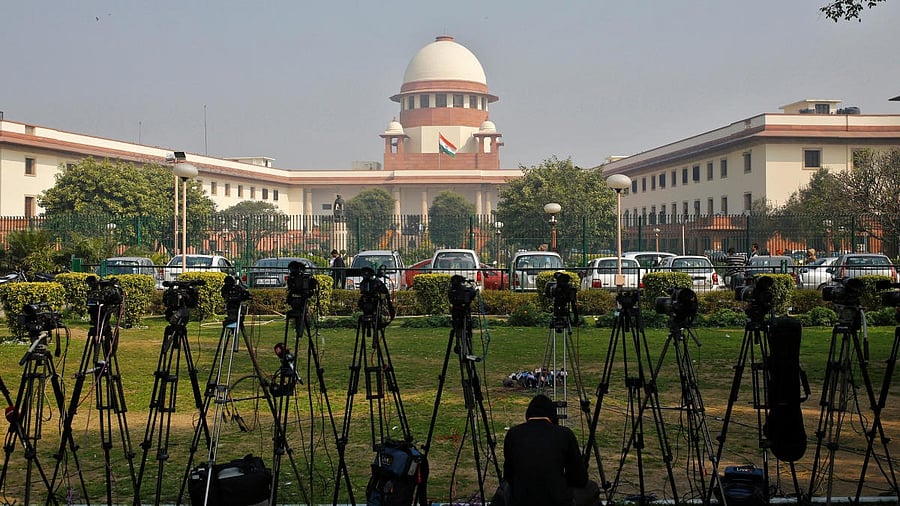
The Supreme Court of India.
Credit: Reuters File Photo
New Delhi: The Supreme Court said that incestuous sexual violence committed by a parent is a distinct category of offence that tears through the foundational fabric of familial trust and must invite the severest condemnation, in both language and sentence.
A bench of Justices Aravind Kumar and Sandeep Mehta upheld the conviction and sentence of life term imposed upon a man over repeated sexual assaults on his minor daughter.
"When a father who is expected to be a shield, a guardian, a moral compass, becomes the source of the most severe violation of a child’s bodily integrity and dignity, the betrayal is not only personal but institutional and the law does not, and cannot, condone such acts under the guise of rehabilitation or reform," the court said.
The bench dismissed the man's petition in limine against the high court's judgment of 2024 and directed the Himachal Pradesh government to provide a compensation of Rs 10.50 lakh to the girl.
"Justice must not be limited to conviction, it must, where the law so permits, include restitution. In awarding this compensation, we reaffirm the constitutional commitment to protect the rights and dignity of child survivors, and to ensure that the justice delivered is substantive, compassionate, and complete,'' the bench said.
In its order on August 4, 2025, the court found the acts committed by the man were not isolated incidents but sustained, deliberate assaults within the safety of the home, a place where every child expects protection.
"The home, which should be a sanctuary, cannot be permitted to become a site of unspeakable trauma, and the courts must send a clear signal that such offences will be met with an equally unsparing judicial response,'' the bench said, rejecting his plea for interim bail.
The bench highlighted that the dignity of women is non-negotiable, and the legal system must not permit repeated intrusion into that dignity under the guise of misplaced sympathy or alleged procedural fairness.
In the case, the bench noted, the victim’s testimony was unwavering, medically corroborated, and free from embellishment. Her disclosure, though delayed, was truthful and borne out of perennial trauma and threats she has undergone, it said.
The court said when a child is forced to suffer at the hands of her own father, the law must speak in a voice that is resolute and uncompromising.
"There can be no mitigation in sentencing for crimes that subvert the very notion of family as a space of security,'' the bench said.
It is now well settled that the testimony of a child victim, if found credible and trustworthy, requires no corroboration, the bench pointed out.
The DNA report also sealed the evidentiary chain and has dispelled all doubts in the prosecution case, the court said.
"In serious offences under the POCSO Act, particularly those involving familial betrayal of trust, relief cannot be granted as a matter of routine. Where two courts have concurrently found guilt and the findings are not shown to be perverse, interference under Article 136 is neither warranted nor justified in the present case,'' the court said.
Entertaining the present petition or remotely considering the grant of bail in a case of this nature, after the guilt has been proved and affirmed, would not merely undermine the majesty of the law, it would amount to a betrayal of the constitutional promise made to every child of this country, the bench said.
"It would be a judicial insult to the sanctity of womanhood and a blow to every mother who teaches her child to believe in justice,'' the bench said.
